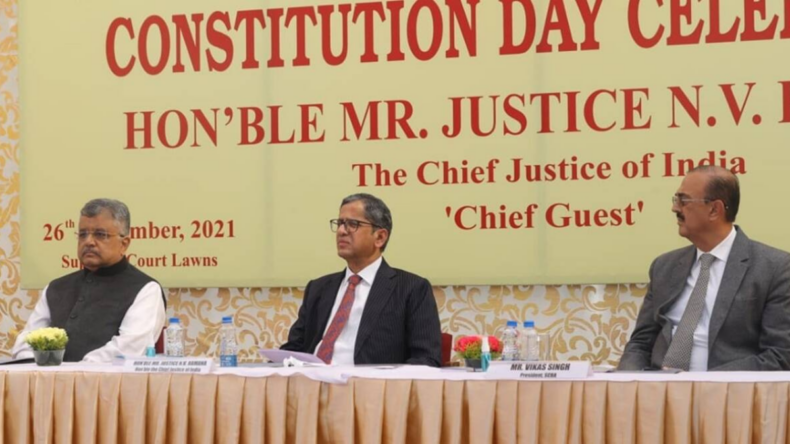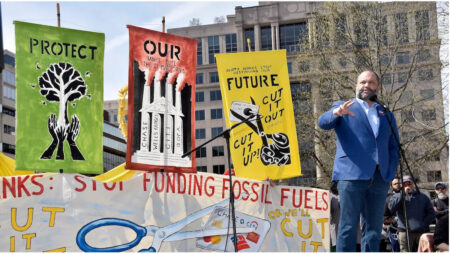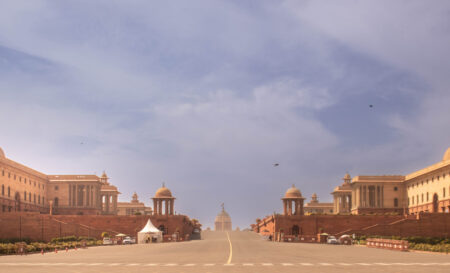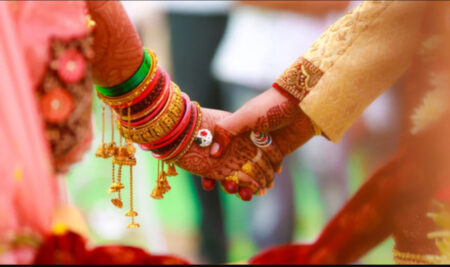On Friday, Prime Minister Narendra Modi stated that the true honour of the Indian Constitution rests in recognising the difficulties of crores of people who lack bathrooms, water, and power and making their lives simpler.
On November 26, the Constitution Day, he spoke at the inaugural function of the Supreme Court registry’s Constitution Day celebrations, saying that the drafters of the Constitution gave us the Constitution in the light of the dreams seen by the people who lived and died for Independence, as well as by cherishing India’s thousands of years of great traditions.
He stated that it is a truth that a significant segment of the population had to suffer isolation even decades after independence.
Millions of people who didn’t even have a toilet at home or who were living in the dark due to a lack of power, and who were without water.
“Hundreds of years of reliance led India into various issues,” remarked the Prime Minister. Poverty, famine, and sickness afflicted India, which was formerly known as the Golden Bird. In that context, the Constitution has consistently aided us in moving the country forward.”
In addressing the issues that developing countries confront, Prime Minister Modi stated, “Attempts are being made to close the road and resources for emerging nations by which developed nations arrived at where they are today.”
For this, a web of distinct terminologies has been spun during the last few decades. Although the goal has always been the same, i.e., to halt the growth of emerging countries.”
According to Modi, the environmental problem is being used for this reason. “At the last COP26 Summit, we witnessed an illustration of this.”
In terms of absolute cumulative emissions, Western countries have created 15% more emissions than India since 1850,” he added.
In his presentation, Chief Justice of India Justice N.V. Ramana stated that the three branches of government must work together.
“To establish perfect justice as contemplated by the Constitution, the Executive and the Legislature must collaborate with the Judiciary.”
Any divergence from the course provided by the Constitution by the Legislature or the Executive would only add to the load on the Judiciary,” he warned.
“The pledge established in the Constitution’s Preamble to provide social, economic, and political fairness to all people imposes a fundamental obligation on the State as a whole.”
The common notion is that the Judiciary is solely responsible for ensuring justice, which is not the case.
On the contrary, it is the responsibility of all three branches of government to preserve the State’s commitment to ensuring justice. “All three organs serve as custodians of constitutional trust,” remarked Justice Ramana.
“The Constitution’s Laxman Rekha is inviolable.” However, in the interest of justice, Courts are sometimes obligated to address unsettled claims.
“The goal of such limited court interventions is to encourage the Executive, not to usurp its authority,” he explained.
Justice Ramana lamented the growing number of attacks on judges. He described it as a significant source of concern for the court, saying that physical attacks on judicial personnel are on the rise but so are attacks on the judiciary in the media, mainly social media.
“These attacks look to be sponsored and coordinated,” he added. He encouraged law enforcement authorities, notably the Central agencies, to respond effectively to such assaults.
CJI Ramana emphasised the issue of lengthy litigations and case pendency, particularly at the lower level.
He described the scenario as “alarming,” adding that “the situation is churning the minds of the populace and there is a need for a multi-pronged response engaging all stakeholders to deal with this scourge.”
Concerning the gap between the average man and the court, Justice Ramana stated, “My experience as a legal practitioner in various contexts inspired me to demand for “Indianisation of the Judiciary.”
Our country’s legal system, as it currently stands, is fundamentally colonial in origin. It makes no allowance for social reality or local constraints.
The processes used, the terminology used in arguments and judgements, and the enormous expenses involved all contribute to the average man’s alienation from the legal system. People should be able to approach the Courts with confidence.
As a result, there is an urgent need to streamline the entire process by removing unnecessary administrative hurdles and encouraging increased use of the local language.
In his speech, Union Law Minister Kiren Rijiju stated that the law ministry had initiated online Constitution classes to educate individuals about their rights and responsibilities.
According to the law minister, the time has come for citizens to prioritise their essential obligations since fundamental rights have always been guaranteed.
Attorney General K.K. Venugopal emphasised the need for the government and the judiciary to protect individuals’ basic rights.
The continuation of the current method of dispensing justice, according to the Attorney General, is a breach of plaintiffs’ entitlement to quick justice. He stated that such a system could not be allowed to continue.
He stated that the Supreme Court must be relieved of its massive burden. “The time has come to create courts of appeals between the High Courts and the Supreme Court in four areas of the nation.”
Courts of Appeal will review petitions challenging HC decisions, and the conclusion will be final,” he stated.
He claimed that because the Supreme Court hears appeals from every high court ruling, it cannot call itself a constitutional court because it seldom decides constitutional matters.













